
Ella Jane Fitzgerald was an American jazz singer, sometimes referred to as the "First Lady of Song", "Queen of Jazz", and "Lady Ella". She was noted for her purity of tone, impeccable diction, phrasing, timing, intonation, and a "horn-like" improvisational ability, particularly in her scat singing.
Philip David Charles Leacock was an English television and film director and producer. His brother was documentary filmmaker Richard Leacock.

"One for My Baby (and One More for the Road)" is a song written by Harold Arlen and Johnny Mercer for the movie musical The Sky's the Limit (1943) and first performed in the film by Fred Astaire.
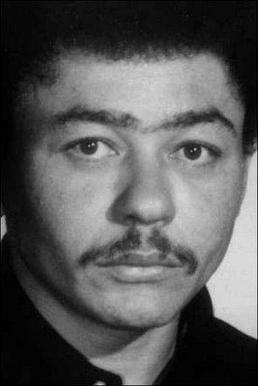
Donald Goines was an African-American writer of urban fiction. His novels were deeply influenced by the work of Iceberg Slim.
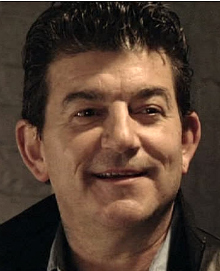
Nicholas Charles "Nick" Cotton is a fictional character from the British soap opera EastEnders played by John Altman on a semi-regular basis from the soap's debut episode on 19 February 1985. Altman has stated that his initial exit was due to producer Julia Smith demanding he was written out after he opposed a decision to make his character gay. After Smith's departure, the character made numerous brief or more protracted stints until his onscreen death in February 2015, which was written to coincide with the 30th anniversary of EastEnders.

Ella Fitzgerald Sings Songs from the Soundtrack of "Let No Man Write My Epitaph" is a 1960 album by the American jazz singer Ella Fitzgerald, accompanied by the pianist Paul Smith. Let No Man Write My Epitaph was a 1960 Hollywood crime drama film featuring Fitzgerald.

Ella and Oscar is a 1975 album by Ella Fitzgerald, accompanied by pianist Oscar Peterson and, for the second half of the album, double bassist Ray Brown.
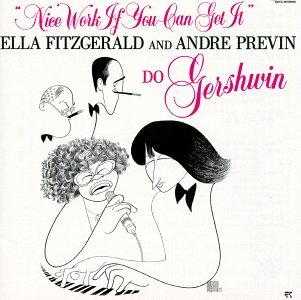
Nice Work If You Can Get It is a 1983 studio album by Ella Fitzgerald and André Previn, with accompaniment from the double bassist Niels-Henning Ørsted Pedersen.

The Complete Ella Fitzgerald Song Books were a series of eight studio albums released in irregular intervals between 1956 and 1964, recorded by the American jazz singer Ella Fitzgerald, supported by a variety of orchestras, big bands, and small jazz combos.

Ella and Basie! is a 1963 studio album by Ella Fitzgerald, accompanied by Count Basie and his orchestra, with arrangements by Quincy Jones and Benny Carter. It was later reissued with slightly different cover art as On the Sunny Side of the Street.

Knock on Any Door is a 1949 American courtroom trial film noir directed by Nicholas Ray and starring Humphrey Bogart. The movie was based on the 1947 novel of the same name by Willard Motley. The picture gave actor John Derek his breakthrough role as young hoodlum Nick Romano, whose motto was, "live fast, die young, and have a good looking corpse."
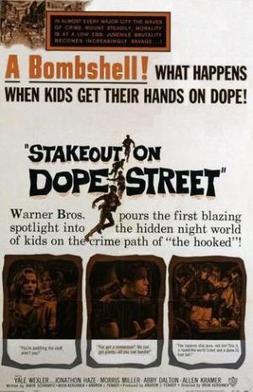
Stakeout on Dope Street is a 1958 American crime film directed by Irvin Kershner and written by Andrew J. Fenady, Irvin Kershner and Irwin Schwartz. It follows three teenagers who inadvertently get themselves involved in a drug ring. It was the directorial debut of Kershner. The film stars Yale Wexler, Abby Dalton, Morris Miller, Allen Kramer and Jonathon Haze. The film was released by Warner Bros. on May 3, 1958.

Martin Louis Paich was an American pianist, composer, arranger, record producer, music director, and conductor. As a musician and arranger he worked with jazz musicians Peggy Lee, Ella Fitzgerald, Stan Kenton, Art Pepper, Buddy Rich, Ray Brown, Shorty Rogers, Pete Rugolo, Ray Charles and Mel Tormé. His long association with Tormé included one of the singer's earliest albums, Mel Tormé with the Marty Paich Dek-Tette. Over the next three decades he worked with pop singers such as Andy Williams and Jack Jones and for film and television. He is the father of David Paich, a founding member of the rock band Toto.
Neil Edward Hopkins is an American television and film actor. He is a trained actor and singer, best known for his portrayal of Charlie's heroin-addicted brother Liam on Lost.
Paul Thatcher Smith was an American jazz pianist. He performed in various genres of jazz, most typically bebop, but is best known as an accompanist of singers, especially Ella Fitzgerald.

Protégé is a 2007 Hong Kong-Singaporean co-produced crime drama film written and directed by Derek Yee, starring Andy Lau, Daniel Wu, Louis Koo, Zhang Jingchu and Anita Yuen.
"Spring is Here" is a 1938 popular song composed by Richard Rodgers, with lyrics by Lorenz Hart for the musical I Married an Angel (1938), where it was introduced by Dennis King and Vivienne Segal.
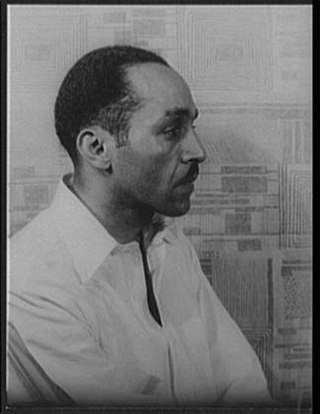
Willard Francis Motley was an African-American author. Beginning as a teenager, Motley published a column in the African-American oriented Chicago Defender newspaper under the pen-name Bud Billiken. He worked as a freelance writer, and later founded and published the Hull House Magazine and worked in the Federal Writers Project. Motley's first and best known novel was Knock on Any Door, which was made into a movie of the same name (1947).
"Drop Me Off in Harlem" is a 1933 song composed during the Harlem Renaissance composed by Duke Ellington, with lyrics written by Nick Kenny.
I Hadn't Anyone Till You" is a popular song written by Ray Noble in 1938. It has been recorded by many artists and is regarded as a standard.














